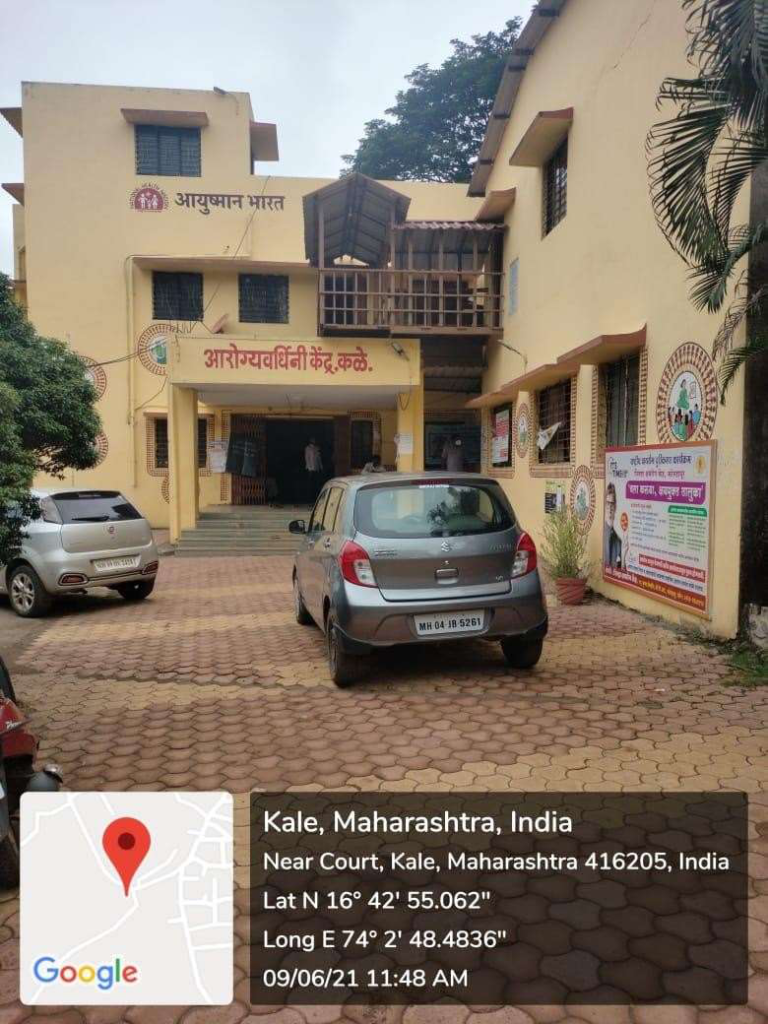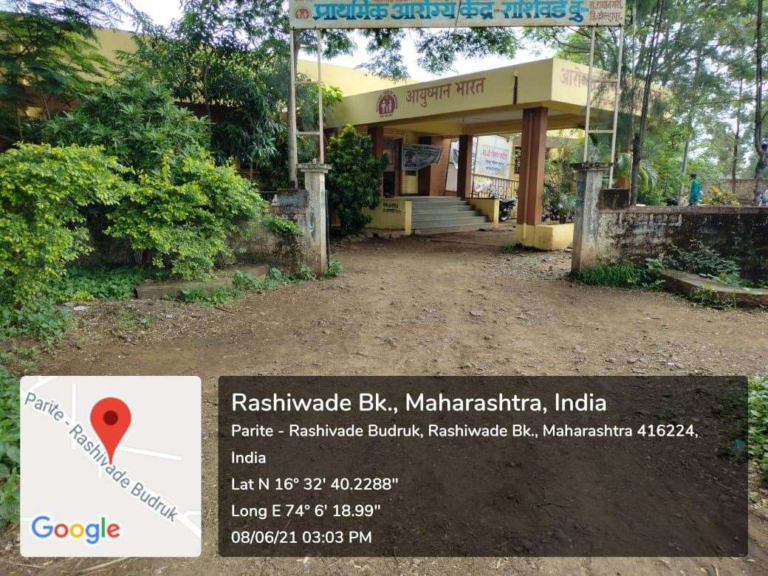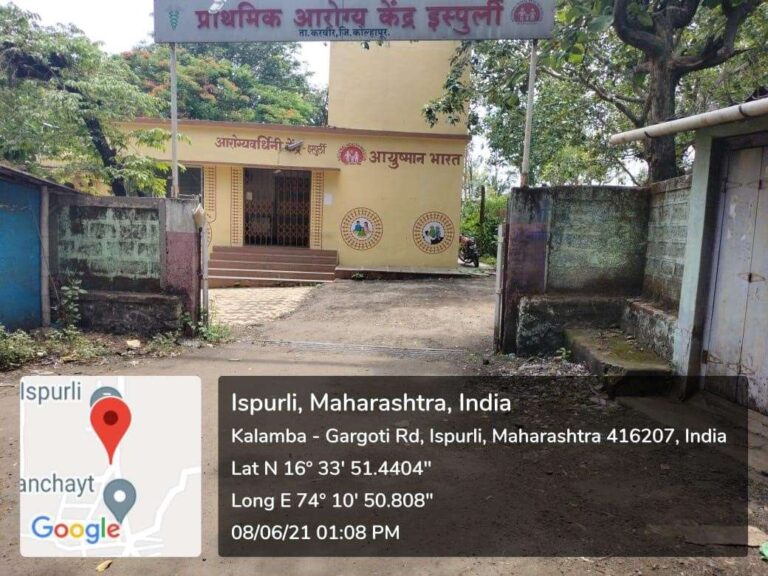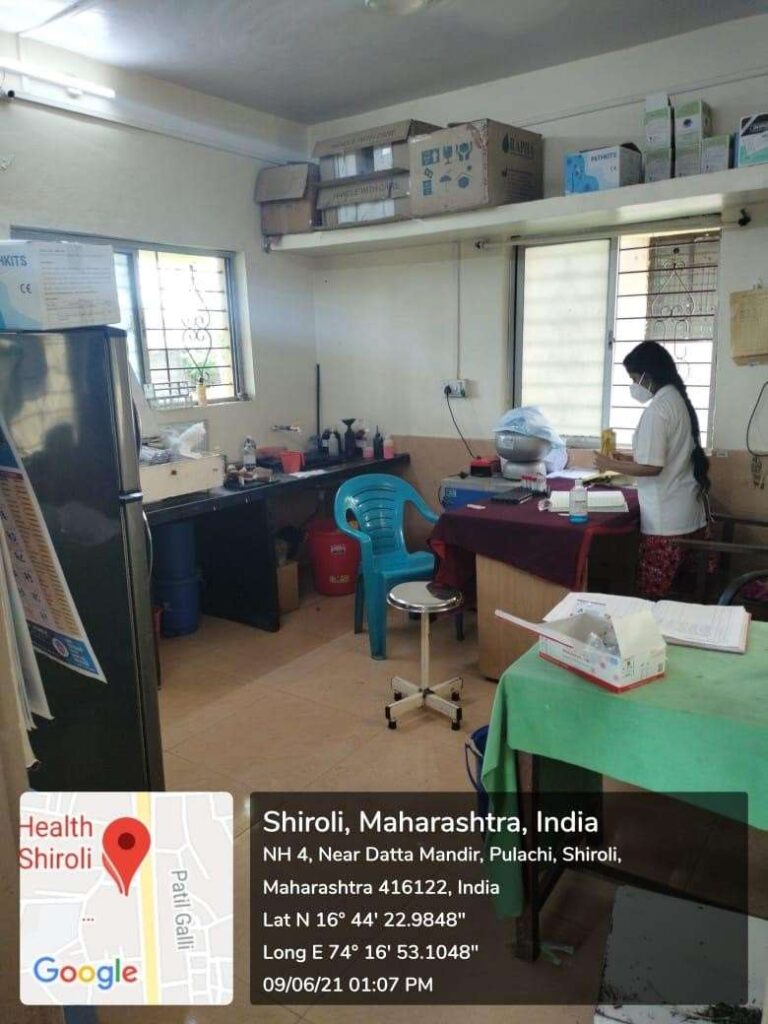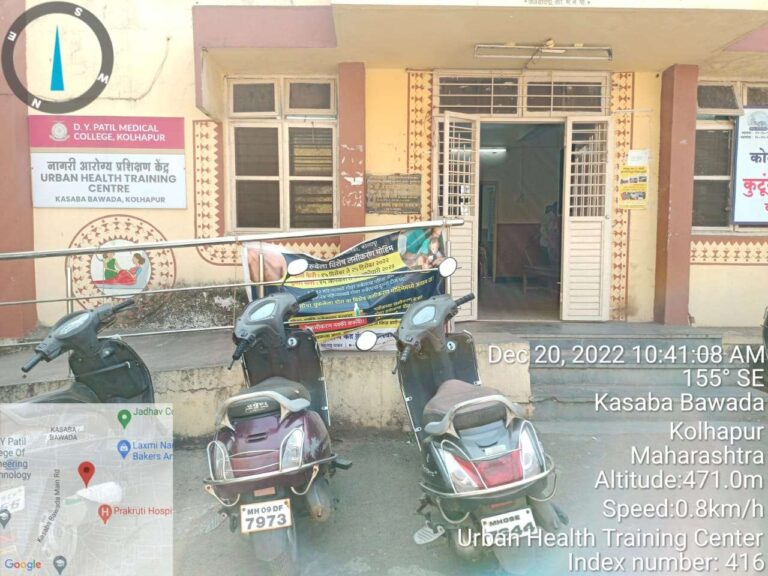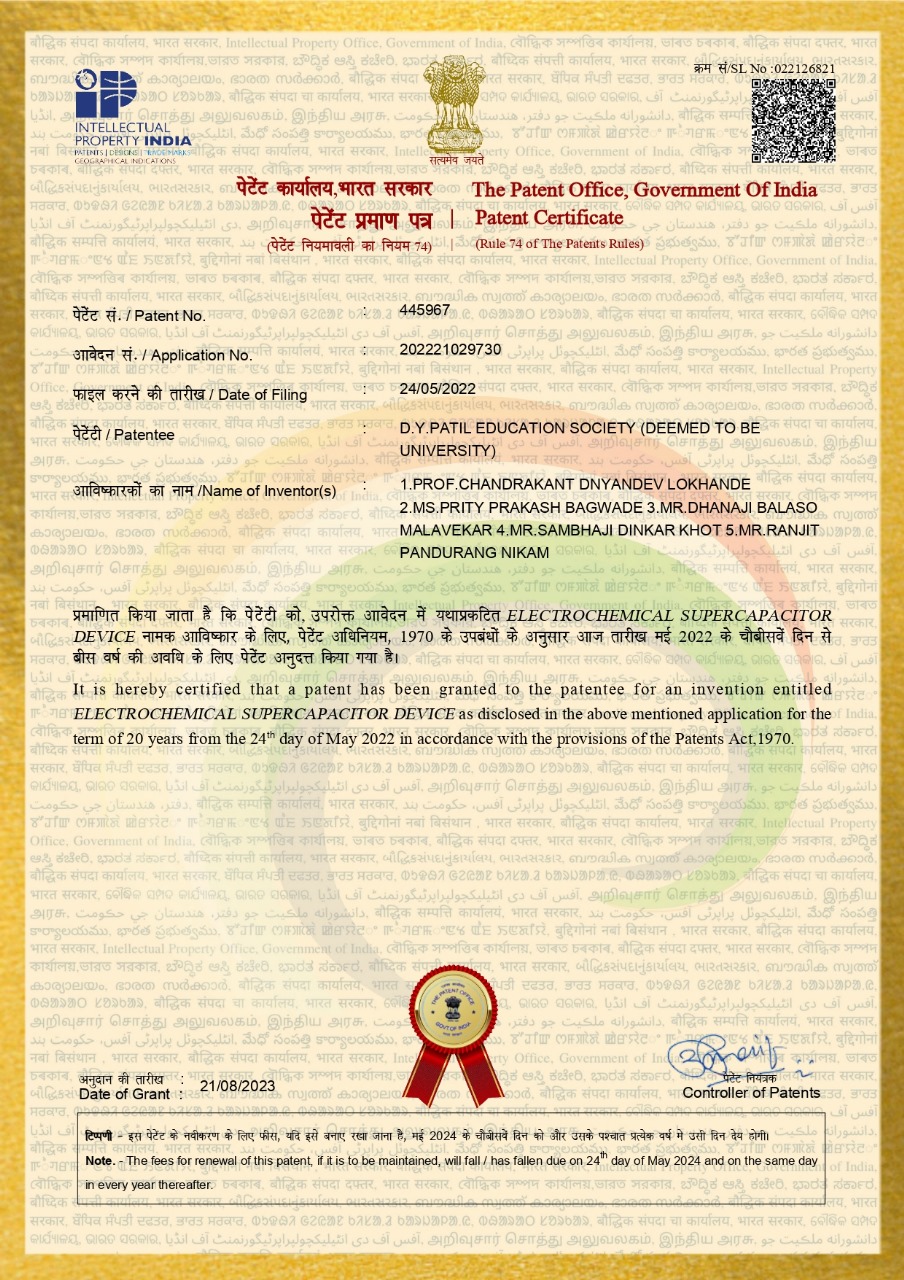The medical college is having field practice area in Urban settings at urban health centre (UHTC) at Kasaba Bawada covering population of 14520 and Rural settings at Rural health centre (RHTC) at village Ghotawade (28 kms) covering 10424 population. The Institute has also attached with 4 Primary health centres at PHC Kale, PHC Rashiwade, PHC Ispurli & PHC Shiroli. Also Rural hospital attachment is present with RH Kagal, SDH Kodoli and RH Pargoan .
Various services provided at these centres include daily OPD, ANC clinic, Immunization, Health education sessions, Family Planning, School Health, Basic Laboratory services and participation in National Health programmes.
These centres help in not only providing preventive, curative and promotive health services to the community but also in training students and Interns in community health-care. Medical students get exposed to different topics like functions of UHTC / PHC, staff pattern, duties of medical officer and paramedical staff. Students also learn about Family Health and MCH practices like ANC / PNC, Immunization, Nutrition, Family Planning and functions of ICDS.
Students are posted in batches (Batch of 30) in rotation at the centres. Students are assigned families to study social and environmental factors affecting heath. By conducting family health surveys, students understand the social, cultural, environmental and economic factors that affect health and encourage them in finding cost effective intervention to these health problems. They realize the importance of water and sanitation in human health.
Based on the need of the community, the students prepare health education materials such as posters, hand outs. Students get hands on training on communication skills by skit presentation on important health issues like addictions, Save baby girl, environmental pollution etc. under the guidance of faculty. Students appreciate the impact of urbanization on health and disease and observe and interpret the dynamicity of community behaviors.
We organize educational visits to PHC, Subcentres, Anganwadi, DTC etc. Students learn the National Health Programmes with particular emphasis on
maternal and child health programmes, family welfare planning and population control. They learn principles of sociology including demographic population dynamics. They understand health care delivery systems, the principles and components of primary health care and the national health policies to achieve the goal of “Health for all”.
Interns (Batch of 150) are posted at these centers in rotation to learn the principles and practice of medicine in hospital and community settings and familiarization with elementary practices.
The aim of Internship is to acquire competence to deal effectively with in the context of primary health care. This is to be achieved by hands-on experience in the Rural Hospital and Primary Health Centre. They are posted for 12 weeks at UHTC, PHC and RHTC (residential posting) in Community Medicine.
During Internship training Interns learn: -
- To use the Art of communication with patients including history taking and medico social work.
- Diagnose and manage common health problems and emergencies at the individual, family and community levels keeping in mind the existing health care resources and in the context of the prevailing socio-cultural beliefs.
- Diagnose and manage common nutritional problems at the individual and community level.
- Diagnose emergencies in medical, surgical, obstetric, neonatal and paediatrics, by rendering first level care and learn to identify timely decision for referral to higher level.
- Learn to use discretely the essential drugs, infusions, blood or its substitutes and laboratory services.
- Participate in health education programmes with skill to use simple audio-visual aids.
- Participate in National Health Programmes and schemes, oriented to provide preventive and promotive health care services to the community along with Medical officer.
- Participate in immunization programme and understand the cold chain system.
- Participate in Health camps, Infectious Diseases Surveillance and Epidemic Management activities along with the medical officer.
Departmental faculty visit to guide and supervise the work at UHTC and RHTC. Weekly Internship monitoring is planned by dept. community medicine at all community settings.
| Sr. No. | Health Centers Name | Type |
|---|---|---|
| 1 | Kale | Primary Health Center |
| 2 | Rashiwade | Primary Health Center |
| 3 | Ispurli | Primary Health Center |
| 4 | Shiroli | Primary Health Center |
| 5 | Kasba Bawada | Urban Health Center |
| 6 | Ghotwade | Rural Health Center |

